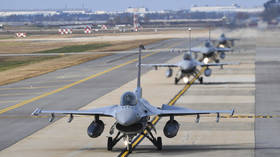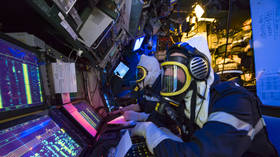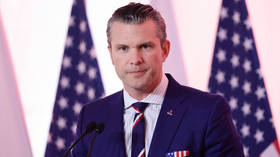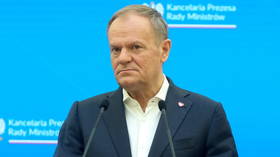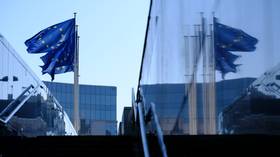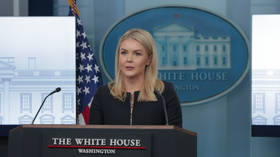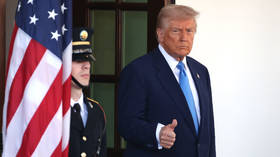‘We had books while you had swamps’: Ukrainian politicians celebrate founding of capital with string of anti-Russian billboards
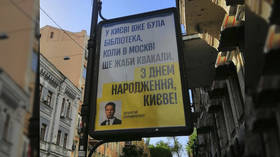
On paper, Kiev Day is supposed to be about celebrating the founding of the Ukrainian capital more than 1500 years ago. But for one local politician, it is just another opportunity to try to score points against neighboring Russia.
Alexey Goncharenko, a member of Ukraine's national parliament, posted pictures of five billboards on his Facebook page on Sunday. Emblazoned with his own face, the signs featured slogans that insisted there were “libraries” and “laws” in medieval Kiev “while toads croaked in Moscow,” seemingly a reference to the fact the Russian capital was built on swampy wetlands.
Despite Goncharenko's manufactured rivalry, accounts are generally unclear as to when the respective capitals were founded and both appear to have been settled since the Stone Age. Kiev was the capital of Kievan Rus' – the precursor to the Russian empire – after it was moved from its earlier seat of Novgorod, in present-day northern Russia. The Ukrainian capital was undoubtedly among the world's great centers of learning, and one of the most important parts of the Polish-Lithuanian Commonwealth, a dominant power in Central and Eastern Europe for decades.
However, modern-day Kiev would seem to have lost some of that significance. Moscow has grown to be the continent's most populous metropolitan area, with around 13 million residents in the city and another seven million in the surrounding eponymous oblast. Meanwhile, only around 2.9 million people call the Ukrainian capital home, and another 1.7 million in the surrounding region. In finance, education, scientific research and the rule of law, its role on the continent has also dwindled, beset by political crises and slow wage growth, especially since the 2014 Maidan upended the country's relationship with Russia and ousted its leader.
Also on rt.com US & NATO allies harming potential Donbass peace by giving more money, weapons and support to Ukrainian army, says Russian FMIn 2016, Swiss firm Mercer Consulting ranked Kiev as the most dangerous city in Europe, with rising crime, thefts and vandalism driving safety concerns. Low prices and old-world European charm had, however, led to the growth of the Ukrainian capital as a tourist destination, particularly for those with historic family roots to the country and visitors from the Middle East. However, a report sponsored by the European bank and an EU business initiative found that the sector had been hit hard by the Covid-19 pandemic and is “now lagging in supportive measures,” meaning that it could struggle to rebound as quickly from the crisis.
The animosity expressed toward Moscow is a sharp change in tone from previously friendly ties. The Russian and Ukrainian capitals were formally twinned, fostering co-operation and exchanges, until the agreement was unilaterally torn up by officials in Kiev in 2016, citing Moscow's reabsorption of Crimea two years prior.
Goncharenko, who sits as an independent MP, has a history of making colorful attacks on Russia. In April, while serving as a delegate to the Parliamentary Assembly of the Council of Europe (PACE), he was banned from giving speeches during sessions for three months after he was deemed to have broken the rules in his criticism of Moscow, branding the head of the Russian delegation “a villain.”
The firebrand politician also sparked a diplomatic row with Germany when he defaced a fragment of the Berlin Wall on display in Kiev with red paint. He defended his actions as a response to Berlin’s position on the status of the Donbass. Prosecutors opened a file on the incident after a protestation from the German Embassy.
If you like this story, share it with a friend!



